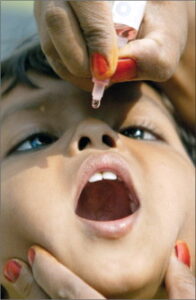Infectious Diseases

Infectious diseases are a significant health concern for children worldwide, affecting their overall well-being and development. Children, particularly those under the age of five, are more susceptible to infections due to their developing immune systems and close interactions with others, such as in schools and daycare settings. Common infectious diseases in this age group include respiratory infections like influenza and pneumonia, gastrointestinal infections caused by viruses or bacteria, and vaccine-preventable diseases like measles, mumps, and rubella. These illnesses can lead to serious complications, requiring timely medical attention and intervention.
Prevention strategies play a crucial role in protecting children from infectious diseases. Vaccination is one of the most effective ways to prevent many childhood infections, significantly reducing the incidence and severity of diseases. Additionally, good hygiene practices, such as regular handwashing, avoiding close contact with sick individuals, and ensuring a clean environment, can help minimize the spread of infections. Parents and caregivers should stay informed about the symptoms of common infectious diseases and seek medical advice when necessary, as early diagnosis and treatment are essential for reducing the impact of these illnesses on children’s health and development.